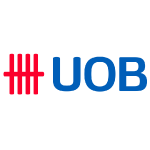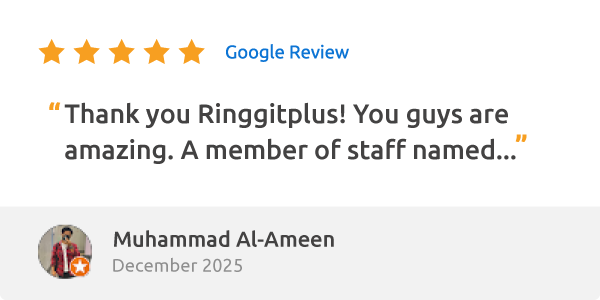SME in Malaysia
What is SME?
SMEs or also known as Small and Medium-sized Enterprises are businesses that maintain revenues, assets or a number of employees below a certain threshold.
These business entities are often regarded as the heartbeat of Malaysia’s emerging and developing economies.
Apart from providing vast numbers of employment opportunities, SME businesses are generally entrepreneurial in nature, helping to shape innovation.
Generally, there are two criteria to be met in order for your business to qualify as an SME, your annual sales turnover and the number of full-time employees in your company.
This also implies differently for each economic sector:
| Sector | Small SMEs | Medium SMEs |
| Manufacturing |
|
|
| Services & Others |
|
|
Under the definition, all SMEs in Malaysia are registered with SSM or other equivalent bodies which include respective authorities/district offices in Sabah or Sarawak, or respective statutory bodies for professional service providers.
However, the meaning of SME excludes business entities that are public-listed on the main board and subsidiaries of:
- Public-listed companies on the main board
- Multinational corporations (MNCs)
- Government-linked companies (GLCs)
- Syarikat Menteri Kewangan Diperbadankan (MKDs)
- State-owned enterprises
It is also worth mentioning that your company can no longer be deemed as an SME when your company has exceeded the threshold set under those two criteria above for two consecutive years, based on your financial year or accounting period.
Does SME matter in Malaysia?
According to SME Corporation’s findings, about 98.5% of business establishments in Malaysia are SMEs.
Based on the report by the Department of Statistics in 2019, these SME businesses contributed RM552.3 billion to Malaysia’s gross domestic product in 2019, or close to 40% share of the country’s total GDP.
There is also an increase in the employment rate for SMEs in Malaysia which comprises 48.4% or close to 7.3 million of total workers employed under SME companies in 2019.
Until today, the SME GDP growth in Malaysia has continued to outpace the country’s overall economic growth hence making SMEs one of the most important business entities in Malaysia.
The challenges faced by SMEs
Starting a business is a big achievement for many entrepreneurs, but maintaining one is the larger challenge.
As your business grows, different problems ought to occur and without the proper and necessary solution, there is a high probability that your business might collapse.
One of the problems facing SME entrepreneurs is that they lack skilled workers and constraints in human resources.
In turn, these issues cause low productivity and quality output within the management including production, thus, hindering their business growth and development moving forward.
Another challenge faced by SMEs is the limited or inability to adapt technology in their business.
In this rapidly changing world of globalization, technology plays an important role in one’s business. They save you time and effort, and it enhances the security of your establishment.
Entrepreneurs cannot undermine the benefits technology provides as most tasks nowadays depend on the latest technological equipment.
In addition to a couple of challenges mentioned, most of the SMEs are facing a similar issue which is the lack of access to finance and capital.
Finance is the essence that assists and allows businesses an opportunity to grow, meet their daily expenses and/or purchase long-term assets for their business.
Without sufficient capital, it hinders profitability, efficient development and success of SMEs in Malaysia.
Where can I apply for financial assistance?
Aside from applying for funds from commercial banks in the market, SME business owners can opt to apply for SME loans from other service financial providers namely the Development Financial Institutions (DFI).
Backed by the government, they are financial services providers that offer targeted financial assistance.
Take a look at some of the DFIs that you can opt for financial assistance from:
- Bank Rakyat
- Bank Pembangunan Malaysia Berhad
- Agrobank
- SME Bank
- BSN
- EXIM Bank
Furthermore, the government recognises the importance of SMEs in Malaysia’s economy.
Thus, throughout the years, they have come out with several government incentives or grants for SMEs in order to assist their business venture.
These are some of the Government Funding/Grants that you can consider opting for:
- Soft Loan Schemes for Services Sectors
- Soft Loan for SMEs
- Tabung Usahawan Siswazah (TUS)
- Young Entrepreneur Fund (YEF)
- Tabung Pembangunan Pengangkutan Awam
- Bumiputera Enterprise Enhancement Programme
- SME Emergency Fund
- Business Start-Up Fund (BSF)
- TEKUN Financing
- Skim Kredit Pengeluaran Makanan (SKPM)
- Rural Economy Funding Scheme (SPED)
- PROSPER Usahawan Muda (PUMA)
Why should I apply for an SME loan?
There are many reasons why aspiring entrepreneurs apply for an SME loan.
Apart from obvious reasons such as to kick start one’s business, some applications are as a targeted financial assistance plan to fund their next business endeavour.
Let’s take a look at the scenarios below:
Scenario 1
Haziq just graduated from a public university in Malaysia. While waiting for a permanent job in his field, he decided to start up a vape shop business with his friend.
He decided to apply for the SME Bank Business Accelerator Program to kick-start his business. Haziq can borrow for up to RM1 million at a flat profit rate for a maximum of 7 years of repayment tenure.
Scenario 2
Nadiah is very good at baking. One of her best is chocolate brownies and moist chocolate cake. While studying at a public university, she uses her free time to bake for her friends. Later on, her cakes were in high demand.
She began to take up orders twice from what she had before but she cannot cope with it due to lack of utilities. She applied for Capital by Boost Credit and managed to open up a small bakery shop in Klang Valley.
Scenario 3
Nazri owns a small farm in rural parts of Selangor. He plants a few types of vegetables and sells them at the local market. Luckily, he got an offer from a huge supermarket to supply vegetables.
However, due to his capacity, he did not manage to fulfil the order in time. He then applied for HSBC Working Capital Term Loan for SME and managed to expand his farm and grow his business.
Which is the best SME loan in Malaysia?
| Commercial bank | |
| Financial services company | |
| Development financial institution |
Check out our online business loan where you can compare and apply for the best SME loan that best fits your next business journey. RinggitPlus wishes you good luck and all the best!



























